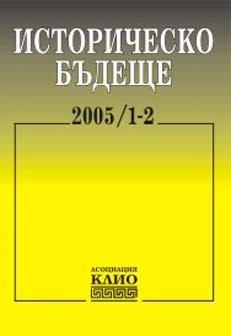Спомените като другата история
Memoirs as the Other History
Author(s): Iliyana MarchevaSubject(s): History
Published by: Асоциация Клио
Keywords: Bulgaria; Bulgarian history; communist nomenclature; Todor Zhivkov; communist regime; memoirs
Summary/Abstract: The memoirs of the former politicians of the higher echelon of the communist nomenclature — Prime Minister, cabinet ministers, members of the highest party bodies (the Political Bureau, the Secretariate and the Central Committee; diplomats, people from the theatre circles, writers courted by the communist regime) — are analysed in the article. As their counterpoint the memoirs of former politicians of the bourgeois times as well as those of politicians of the period of transition at the end of the 20th century are also examined. What they have in common is the fact that they are all „former“ ones and write memoirs in order to share their own points of view in regard to the times when they used to make history. Thus, in actuality, they write the other history which had remained beyond the official account. Most memoirs have the character of autobiographies, interlarded with the authors’ reflections, assessments and impressions but very often they are based on archival documents and the press. For that reason the other history revealed in them does not substantially differ from the new, official version except for the evaluation made (negative or positive). The complete negation of the communist regime prevailing in the official version, especially until the end of the 20th century, is overcome in this kind of reminiscences. They correct this version, presenting it in the light of their individual experience. That is the reason for the emergence of differences, in accordance with age, the time of writing, the post held by the author, in the memories of the regime and the man who for many years personified it. The memoirs reflect the impaired sense of identity in most authors, particularly in the generation of politicians after 1956, due to their being divided between the wish to rewrite their autobiographies in a critical manner and at the same time not to renounce in an entirely open way their implication in the communist order. At the beginning of the 21st century the past stops being the main resource of legitimatization and identification. The boundaries of research by historians, sociologists, and anthropologists on the communist regime in Bulgaria are being extended. All this causes the history told by the former communist nomenclature to lose the qualities of “another” history and become more and more literature.
Journal: Историческо бъдеще
- Issue Year: 2005
- Issue No: 1-2
- Page Range: 111-135
- Page Count: 25
- Language: Bulgarian
- Content File-PDF

